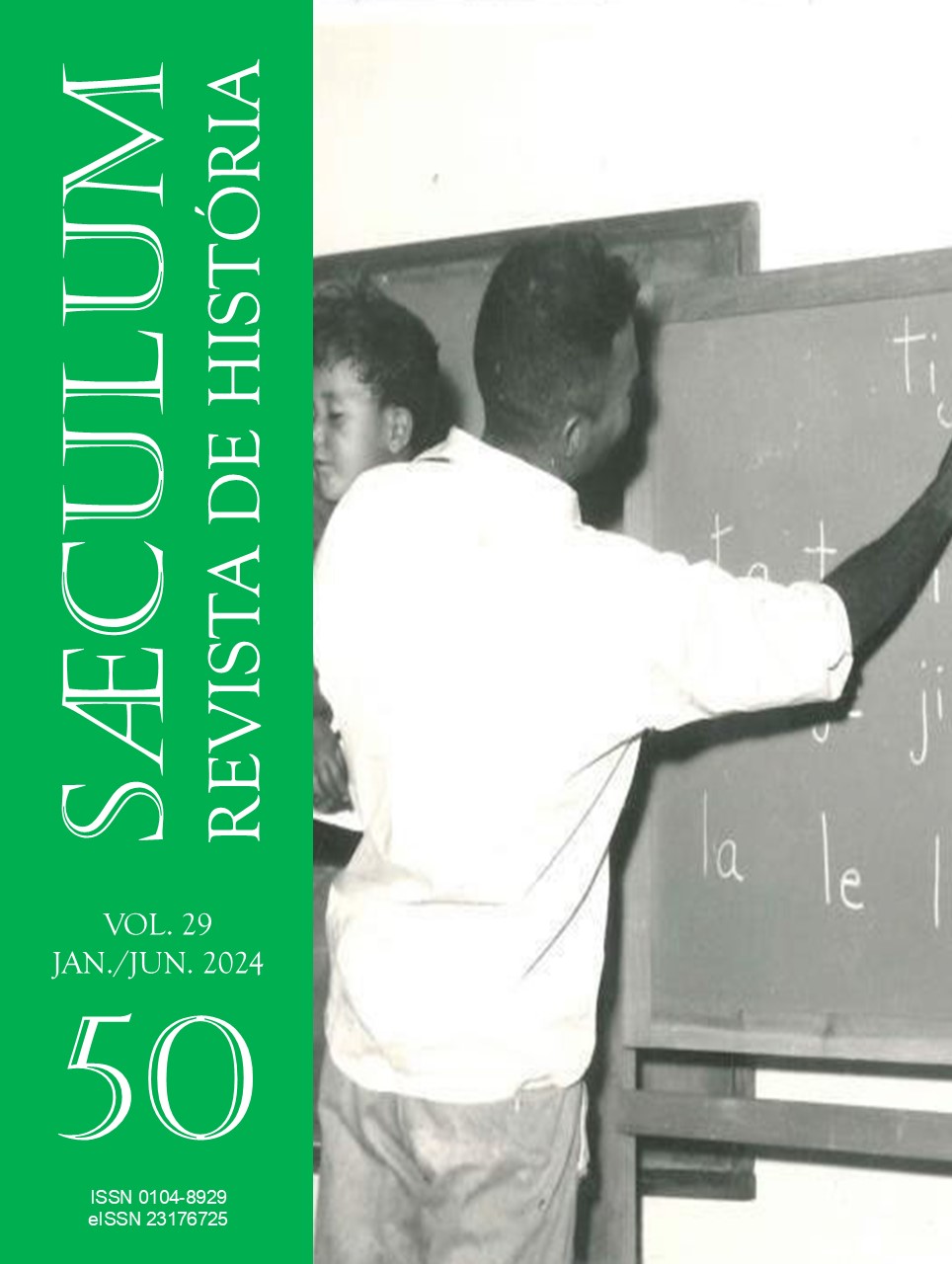The History Curriculum and Gender Issues:
The BNCC as an Instrument of Power
DOI:
https://doi.org/10.22478/ufpb.2317-6725.2024v29n50.69260Keywords:
Curriculum, Gender, National Common Curricular Base (BNCC), History Teaching, SchoolbookAbstract
In this article, we intend to explore how the curricular choices shaping the National Common Curricular Base (BNCC) either propose or neglect discussions of gender in the teaching of History. To do so, we initially discuss the emergence of Women's History and the gender category as a historiographical renewal movement that challenges traditional narratives, engaging with authors as Joan Scott and Judith Butler. Consequently, we address the National Common Curricular Base (BNCC) as a political construction marked by intentions, influenced by the neoliberal scenario and Eurocentrism. Analyzing the BNCC focused on Elementary Education, it was possible to perceive its gaps in addressing gender and sexual diversity, highlighting the limitation in representing women's participation in History, as well as the lack of explicit gender discussions in the document. This approach's influence extends to textbooks, where female participation is often treated as an appendix. To illustrate this discussion, we analyze the presence of women in the book "Estudar História" (BRAICK; BARRETO, 2018), published by Editora Moderna, demonstrating how these materials often reproduce stereotypes and perpetuate traditionally male views of history. Paths are thus proposed for a more equitable teaching of History, emphasizing the importance of a critical review of the BNCC and the production of more inclusive educational materials that challenge limited historical narratives and highlight the historical agency not only of women but also of other marginalized groups.
Downloads
References
ADICHIE, Chimamanda Ngozi. Meio sol amarelo. São Paulo: Companhia das letras, 2008.
ALCÂNTARA, Patrícia Costa; PINHEIRO, Isabella Santos; NASCIMENTO, Dandara Lorrayne do. Ensino de História e Mundos do Trabalho na Transição dos Ensinos Fundamentais I e II: Uma abordagem a partir da investigação dos modelos mentais. Revista Eletrônica Multidisciplinar Pindorama, Eunápolis (BA), v. 11, n. 2, p. 25-42, jul./dez. 2020. DOI: https://doi.org/10.55847/pindorama.v11i2.760
BERNARDINO-COSTA, Joaze; MALDONADO-TORRES, Nelson; GROSFOGUEL, Ramón. (Org.). Decolonialidade e pensamento afrodiaspórico. 2. ed. Belo Horizonte: Editora Autêntica, 2019.
BITTENCOURT, Circe. Livros didáticos entre textos e imagens. In: BITTENCOURT, Circe (Org.). O saber histórico na sala de aula. São Paulo: Contexto, 1998.
BRAICK, Patrícia Ramos; BARRETO, Anna. Estudar História: Das Origens do Homem à Era Digital. Componente curricular: História. 3ª ed. São Paulo: Editora Moderna, 2018.
BRASIL. Base Nacional Comum Curricular (BNCC). Educação é a Base. Brasília, DF: MEC, 2017.
BUTLER, Judith. Problemas de gênero: feminismo e subversão da identidade. Editora José Olympio, 2018.
BUTLER, Judith. Quadros de Guerra: Quando a vida é passível de luto? Trad. Sérgio Lamarão e Arnaldo Marques da Cunha. Rio de Janeiro: Civilização Brasileira. 2020.
CERTEAU, Michel de. A invenção do cotidiano. 1. Artes de fazer. 11 ed. Trad. Ephraim Ferreira Alves. Petrópolis-RJ, Vozes, 2005
FANON, F. Pele negra, máscaras brancas. Trad. de Sebastião Nascimento. São Paulo: Ubu Editora, 2020.
FREITAS, Ana Paula Saraiva. A Presença Feminina no Cangaço: Práticas e Representações (1930-1940). Dissertação (Mestrado em História) - Universidade Estadual Paulista, Faculdade de Ciências e Letras de Assis, 2005.
FREITAS, Luiz Carlos de. Os reformadores empresariais da educação e a disputa pelo controle do processo pedagógico na escola. Educação & Sociedade, v. 35, p. 1085-1114, 2014. DOI: https://doi.org/10.1590/ES0101-73302014143817
LIBÂNEO, José Carlos. Didática. São Paulo: Cortez, 1994.
MBEMBE, Achille. Crítica da Razão Negra. Lisboa: Editora Antígona, 2014.
PERROT, Michelle. Os excluídos da História: operários, mulheres e prisionérios. Tradução Denise Bottmann. 4 ed. Rio de Janeiro: Paz e terra, 2006.
RALEJO, Adriana Soares; MELLO, Rafaela Albergaria; AMORIM, Mariana de Oliveira. BNCC e Ensino de História: horizontes possíveis. Educar em Revista, v. 37, 2021. DOI: https://doi.org/10.1590/0104-4060.77056
SANTOS JÚNIOR, Christoval Araújo. As Marias no Cangaço: Faces Femininas no Banditismo Social (1930-1940). Historien – Revista de História [3]. p. 121-135, 2010.
SCOTT, Joan. Gender: a useful category of historical analyses. Gender and the politics of history. New York, Columbia University Press. 1989.
SEPULVEDA, D.; SEPULVEDA, J. A. (2021). O Ensino De História, A História Das Mulheres, Os Gêneros E As Sexualidades. Educação Em Foco, v. 26 n. Especial, 2021. DOI: https://doi.org/10.34019/2447-5246.2021.v26.34940
VÁZQUEZ, Georgiane Garabely Heil. Gênero não é ideologia: explicando os Estudos de Gênero. (Artigo) In: Café História – História feita com cliques. Disponível em: https://www.cafehistoria.com.br/explicando-estudos-de-genero/. Publicado em: 27 nov. 2017. Acesso: 12 de dez. 2023.
Downloads
Published
How to Cite
Issue
Section
License
Copyright (c) 2024 Suzyanne Valeska Maciel de Sousa, Isamarc Gonçalves Lôbo

This work is licensed under a Creative Commons Attribution-NonCommercial 4.0 International License.
A revista Sæculum permite aos autores a manutenção dos direitos autorais pelo seu trabalho, no entanto eles devem repassar direitos de primeira publicação ao periódico.











